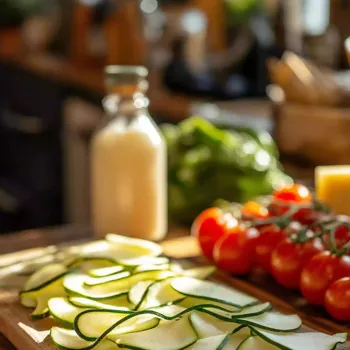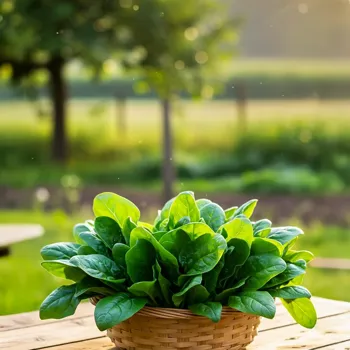Embark on a Plant-Powered Journey: A Beginner's Guide to Plant-Based Eating. Dive into the benefits and tips!
Namaste, readers! Are you curious about plant-based eating but feeling a bit overwhelmed? Don't
worry, you're not alone! More and more Indians are exploring the world of vegetarian and vegan diets, and for good reason.
It's not just a fad; it's a tasty and potentially healthier way to nourish your body while being kinder to the planet and animals. Think of it as a journey of delicious discoveries!
Guide for plant-based living with tips, myths, and recipes
This guide is your friendly starting point, offering simple explanations, practical tips, and mouth-watering ideas to make your plant-based adventure a delightful one. So, ditch the confusion, grab a cup of chai, and let's dive in!

We'll break down the basics, bust some myths, and equip you with everything you need to embrace the goodness of plant-powered living.
Understanding plant-based diet vs vegetarian/vegan for health & sustainability
Firstly, let's understand what "plant-based" actually means. While often used interchangeably with "vegetarian" and "vegan," it's slightly different. A vegetarian diet typically excludes meat, poultry, and fish, but may include dairy and eggs.
A vegan diet, on the other hand, eliminates all animal products, including dairy, eggs, and sometimes even honey. A "plant-based" diet generally emphasizes whole, unprocessed plant foods like fruits, vegetables, legumes (beans, lentils), grains, nuts, and seeds.
It doesn't necessarily mean you never eat animal products, but the focus is overwhelmingly on plants. Think of it as prioritizing plants on your plate most of the time. This approach allows for flexibility and makes it easier for beginners to transition.
You could start with "Meatless Mondays" or gradually reduce your dairy intake. The goal is to increase your consumption of plant-based foods in a way that's sustainable and enjoyable for you.
Plant-based eating benefits health, environment, and wallet
The benefits of plant-based eating are numerous and well-documented. Many studies suggest that people who eat primarily plant-based diets tend to have a lower risk of heart disease, type 2 diabetes, certain types of cancer, and obesity.

This is likely due to the high fiber content, abundance of vitamins and minerals, and lower levels of saturated fat and cholesterol found in plant foods. Fiber, especially, is a champion for your digestive system, keeping things moving smoothly and helping you feel full and satisfied.
Plant-based diets are naturally rich in antioxidants, which protect your cells from damage caused by free radicals. And let’s not forget the positive environmental impact. Raising animals for food requires significant resources, including land, water, and energy.
By choosing more plant-based options, you can shrink your environmental footprint and contribute to a more sustainable future. Furthermore, plant-based meals can be incredibly budget-friendly.
Start small on plant-based journey, try new recipes, protein sources
Now, for some practical tips to get you started on your plant-based journey. Instead of making drastic changes overnight, start small. Introduce one or two plant-based meals each week. Experiment with new recipes and ingredients.
There are countless Indian vegetarian and vegan dishes that are naturally plant-based and full of flavor. Think of dals, sabzis, vegetable curries, and lentil-based soups. Explore the world of plant-based protein sources like tofu, tempeh, seitan, and pulses.
Tofu, made from soybeans, is a versatile ingredient that can be used in stir-fries, scrambles, and even desserts. Tempeh, also made from soybeans, has a firmer texture and a nutty flavor. Seitan, made from wheat gluten, is a chewy and protein-rich meat substitute.
Pulses, like lentils, chickpeas, and kidney beans, are excellent sources of protein and fiber. Don't be afraid to try new things and find what you enjoy!
Meal planning key for plant-based success: plan, batch cook, read labels, focus on nutrients
Planning your meals in advance can make plant-based eating much easier. Take some time each week to plan your meals and create a shopping list. This will help you avoid impulsive decisions and ensure you have all the ingredients you need on hand. Batch cooking is another time-saving technique.
Prepare large quantities of grains, beans, or roasted vegetables on the weekend and use them in meals throughout the week. It's also important to read food labels carefully. Many processed foods contain hidden animal products or additives.
Look for vegan or vegetarian certifications to ensure the product meets your dietary needs. Also focus on nutrients that some people might be deficient in without proper planning, such as vitamin B12, iron, calcium, and omega-3 fatty acids.
Essential nutrients for a plant-based diet journey
Remember these basics during your journey. These nutrients can be obtained from fortified foods, supplements, and a well-planned diet. For example, nutritional yeast is a great source of vitamin B12, while leafy green vegetables, lentils, and tofu are good sources of iron.
Calcium can be found in fortified plant milks, leafy green vegetables, and sesame seeds. Omega-3 fatty acids can be obtained from flaxseeds, chia seeds, and walnuts. Finally, don't be afraid to seek support from friends, family, or a registered dietitian.
Sharing your journey with others can provide encouragement and accountability. There are also many online communities and resources available to help you succeed. Remember, plant-based eating is a journey, not a destination.
Be patient with yourself, celebrate your successes, and enjoy the process of discovering new foods and flavors.
Guide to plant-based eating for a fulfilling journey
So there you have it! A simple guide to get you started on your plant-based eating adventure. Remember, it's all about progress, not perfection. Enjoy the journey, explore the delicious possibilities, and reap the many benefits of a plant-powered lifestyle! Shubh yatra!
AI Generated Content. Glance/InMobi shall have no liability for the content












